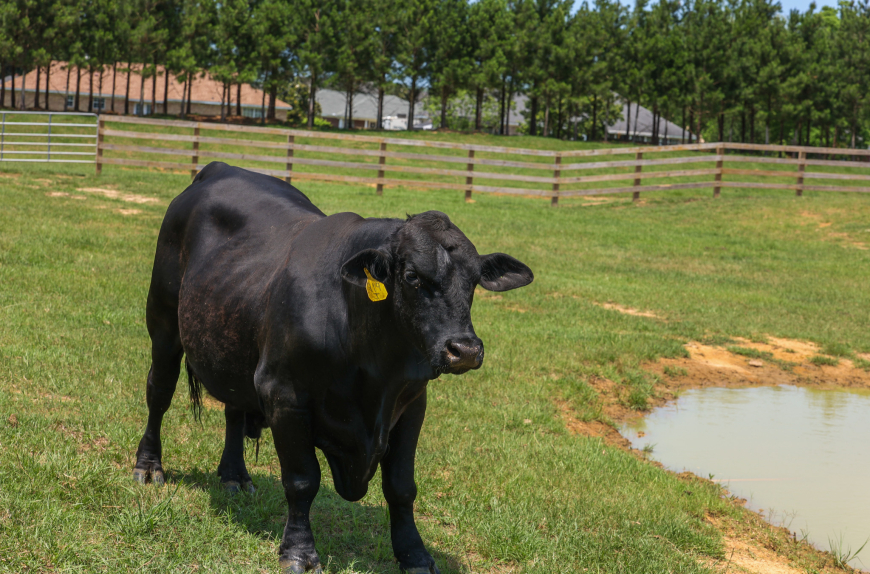
At Liberty Acres Cattle Company, sustainability is at the heart of how we raise our cattle. One of the most important aspects of our approach is ensuring that our cattle are grass-fed and raised without the use of hormones or unnecessary antibiotics. This practice not only results in healthier cattle and better-quality beef but also has significant benefits for the environment and public health.
1. Healthier Soils and Ecosystems
When cattle graze on natural grass, they contribute to the health of the soil. Grass-fed cattle grazing promotes the natural growth of diverse plant species, which helps to build resilient ecosystems. The absence of artificial growth hormones and chemicals also ensures that the soil and water systems are not contaminated by runoff from feedlots or chemically treated pastures. This leads to healthier grasslands, better water retention, and reduced soil erosion.
2. Reduced Environmental Impact
By avoiding the use of hormones and excessive antibiotics, we minimize the risk of environmental contamination. Factory farming and feedlots often rely on chemicals and antibiotics to promote rapid growth, leading to a buildup of these substances in the environment. Grass-fed cattle raised without these additives reduce the ecological footprint of beef production, supporting cleaner air, water, and land. Additionally, grass-fed cattle contribute to carbon sequestration, where the grasslands help capture and store carbon in the soil.
3. Public Health and Food Safety
The routine use of antibiotics in livestock has been linked to the rise of antibiotic-resistant bacteria, a growing concern in global public health. By raising our cattle without unnecessary antibiotics, we contribute to slowing the spread of antibiotic resistance, ensuring that the beef we provide is safer for consumption. In addition, avoiding the use of growth hormones ensures that the meat is free from synthetic hormones that may have health risks for consumers.
4. Enhanced Animal Welfare
Cattle that are grass-fed and not subjected to hormones or unnecessary antibiotics lead healthier, more natural lives. They graze in open pastures and are not confined to crowded feedlots. This humane approach to raising cattle ensures that the animals are not exposed to the stress and health issues that come with industrial farming practices, contributing to their overall well-being and producing better-quality meat.
5. Sustainable Farming for Future Generations
Sustainable ranching practices like those at Liberty Acres not only benefit the environment today but also ensure that future generations can continue to farm and raise livestock. By maintaining the health of our pastures, protecting biodiversity, and reducing our ecological footprint, we are helping to preserve agricultural land for the long term. Sustainable practices help create a regenerative cycle that supports both the land and the animals, ensuring the ranch remains productive and eco-friendly for years to come.
By choosing grass-fed, hormone-free, and antibiotic-free beef, you are supporting a healthier planet, healthier animals, and better food for you and your family.

